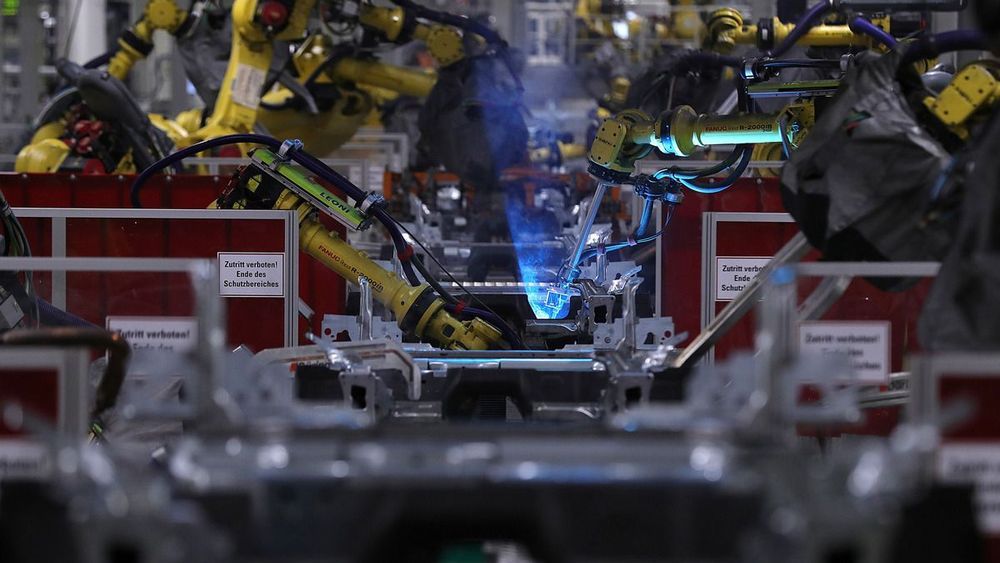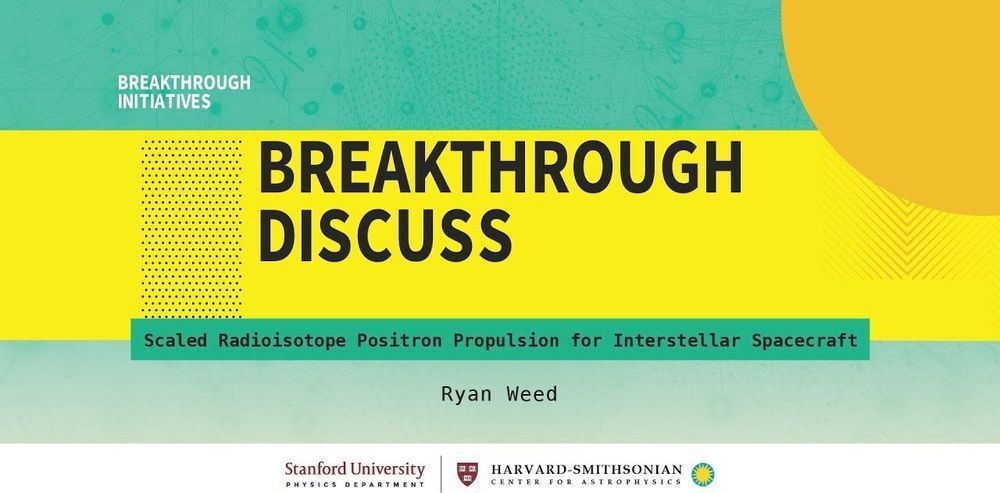With millions of jobs expected to be displaced by 2022, measures like education reform, lifelong learning & reskilling initiatives will ensure benefits reach both individuals and businesses.


With millions of jobs expected to be displaced by 2022, measures like education reform, lifelong learning & reskilling initiatives will ensure benefits reach both individuals and businesses.

Ryan Weed updates the work at Positron Dynamics at Space Access 2019. Positron Dynamics has completed the NASA NIAC study. They are applying for some Small Business Innovation Research (SBIR) grants.
Positron Dynamics will use Krypton isotopes to generate positrons. They would breed more Krypton isotopes. They sidestep the issue of antimatter storage. It would take 10 school buses of volume at the Brillouin limit to trap 1 microgram.
They are slowing the positrons that are generated. Krypton 79 isotope to generate hot positrons. Use their system to moderate the positrons so they can be used.

On July 11–12, we will be hosting our second annual Ending Age-Released Diseases conference. This conference focuses on the progress of aging research along with the business and investment side of rejuvenation biotechnology.
Aging research is on the cusp of some major breakthroughs in the battle against age-related diseases, and we invite you to join us for an action-packed event filled with exciting talks and discussion panels featuring some of the leaders of aging research and the biotech business.

Fifteen years ago, Rushika Fernandopulle had a radical idea.
A primary care doctor by training, he had been treating patients in the standard, insurance-backed way. But he started to realize that wasn’t working, and insurance wasn’t covering what he wanted to do for patients.

Indeed, Schindler stressed that Google would generate personalized Maps recommendations in “privacy-sensitive, opt-in ways.”
The company is betting that adding more data about places and businesses to Maps will lead people to spend more time on the service. As users expect more from Maps, Google has extra space to introduce more ads.
“We want to be able to highlight things that are around you and surface them nearby to you in a way that’s not disrupting your experience,’’ said Rajas Moonka, director of product management for Google Maps. Because so much of what users are looking for in Google Maps is commercial in nature, ads can be a helpful addition to the experience, he said.

Istanbul New Airport, which is now opened for business, will be able to handle 200 million passengers a year and has a massive duty free area as well as on onsite Yotel.

Google’s parent company has launched a world-first commercial air delivery business in Canberra’s north, delivering gelato and golfing equipment by drone directly to homes.

Tohoku University researchers have developed an algorithm that enhances the ability of a Canadian-designed quantum computer to more efficiently find the best solution for complicated problems, according to a study published in the journal Scientific Reports.
Quantum computing takes advantage of the ability of subatomic particles to exist in more than one state at the same time. It is expected to take modern-day computing to the next level by enabling the processing of more information in less time.
The D-Wave quantum annealer, developed by a Canadian company that claims it sells the world’s first commercially available quantum computers, employs the concepts of quantum physics to solve ‘combinatorial optimization problems.’ A typical example of this sort of problem asks the question: “Given a list of cities and the distances between each pair of cities, what is the shortest possible route that visits each city and returns to the original city?” Businesses and industries face a large range of similarly complex problems in which they want to find the optimal solution among many possible ones using the least amount of resources.

Trade Secretary Ramon Lopez said the DTI would soon launch an initiative to train the country’s IT and engineering graduates to create AI solutions for the global marketplace.
Instead of fearing artificial intelligence (AI), a supposed threat to the country’s thriving business process outsourcing (BPO) industry, the Philippines can position itself as a global AI hub, Trade Secretary Ramon Lopez said.
In a recent chance interview, Lopez said the Department of Trade and Industry would soon launch an initiative to train the country’s IT and engineering graduates to create AI solutions for the global marketplace.
Lopez said the government could team up with successful Filipino technopreneur Dado Banatao to upgrade the skills of the country’s IT, science and engineering graduates.